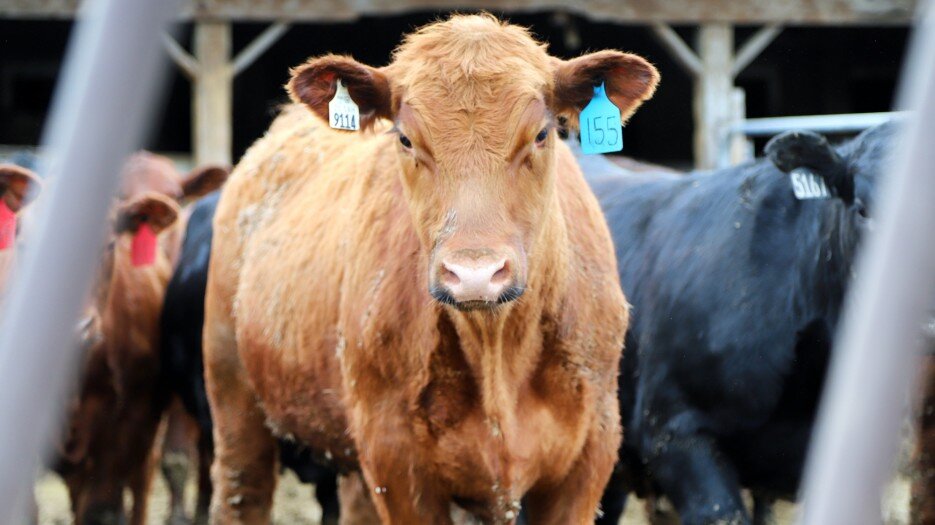Farmers who were previously ineligible for the Coronavirus Food Assistance Program 2 (CFAP 2) can now apply for aid thanks to collaboration between the American Farm Bureau, lawmakers and USDA. Up to $1 billion will be made available through the Consolidated Appropriations Act to livestock and poultry producers who suffered financial losses from January 1, 2020, through December 27, 2020. The American Farm Bureau first raised concern about farmers being left out of the aid package in May 2020 and has been engaged on this issue for more than a year.
Read MoreAmerican Farm Bureau Federation President Zippy Duvall commented today on the Senate passage of the Infrastructure Investment and Jobs Act.
“AFBF appreciates the Senate for working together in a bipartisan manner to pass the Infrastructure Investment and Jobs Act. The pressing infrastructure issues facing our nation are too important to ignore, particularly in rural communities where modernization is desperately needed.
Read MoreFarmers and ranchers faced over $6.5 billion in losses, over $3.6 billion, or 55%, of which was not covered by existing Risk Management Agency (RMA) programs. In 2018 and 2019, crop losses associated with qualifying weather disasters were partially mitigated by the Wildfire and Hurricane Indemnity Program Plus (WHIP+), a disaster assistance program with origins in the 2017 WHIP, which provided financial assistance to producers with disaster-related production losses on both insured and non-insured crops.
Read MoreAmerican Farm Bureau Federation President Zippy Duvall commented today on the U.S. Senate Judiciary Committee and U.S. House Agriculture Committee hearings on the current state of the beef supply chain.
“American Farm Bureau appreciates the work of the committees in both houses of Congress to investigate the strengths and weaknesses of our country’s food systems, specifically livestock markets.
Read MoreThe U.S. House Agriculture Committee unanimously passed a resolution that could help Louisiana farmers and ranchers qualify for disaster assistance through the Wildfire and Hurricane Indemnity Program Plus, better known as WHIP+. The 2020 WHIP+ Reauthorization Act, with an Amendment in the Nature of a Substitute (ANS) qualifies both the 2020 and 2021 crop years for coverage.
Read MoreHurricanes, wildfires, and droughts – oh my! Not only was 2020 defined by COVID-19-induced volatility, over 22 weather and climate disasters, each with damages reaching over a billion dollars, hit the U.S. coast to coast last year. The National Oceanic and Atmospheric Administration (NOAA) reported that 2020 shattered a previous annual record of 16 individual billion dollar weather events which occurred in both 2011 and 2017. With over 262 lives lost and more than $96.4 billion in total economic damages, these disasters will haunt impacted communities for years to come.
Read MoreWater is central to our lives. We pray for rain in droughts and talk about “showers of blessings.” But on the other hand, too much rain can be devastating. Farmers in Mississippi, Arkansas and Louisiana are seeing just how destructive all that moisture can be.
About a month ago, a storm system dumped 15-26 inches of rain in these states in just 48 hours. With so much water in a small amount of time coming after an unusually wet spring, water quickly spilled out of riverbanks and filled ditches. It covered fields and washed away crops. It devastated homes and businesses. As communities come together to recover, many farmers and ranchers will try to salvage whatever crops they can, while for some, the season has been completely washed out.
Read MoreU.S. consumers will pay just a few cents less for their favorite Independence Day cookout foods compared to last year, including cheeseburgers, pork chops, chicken breasts, homemade potato salad, strawberries and ice cream, says the American Farm Bureau Federation.
Farm Bureau analysis reveals the average cost of a summer cookout for 10 people remains affordable at $59.50, or less than $6 per person. The cost for the cookout is down 16 cents (less than 1%) from last year, but 8% higher compared to 2019.
Read MoreThe American Farm Bureau Federation applauds the U.S. Senate for passing the Growing Climate Solutions Act. The act has 55 cosponsors, which makes it the first major piece of bipartisan legislation that would help farmers, ranchers and forest landowners reduce greenhouse gas emissions and build climate resilience through voluntary, market-driven programs. The Growing Climate Solutions Act passed by a vote of 92-8.
Read MoreRecently introduced legislation would create greater price discovery and transparency within the cattle market, while giving producers more tools and useful information. The Farm Bureau-backed Optimizing the Cattle Market Act of 2021 would direct USDA to create a cattle formula contracts library and increase the reporting window for “cattle committed” from seven to 14 days.
The bill would also require USDA, in consultation with the department’s chief economist, to establish mandated minimums for regional negotiated cash and negotiated grid live cattle trade.
Read MoreAmerican Farm Bureau Federation President Zippy Duvall commented today on the Environmental Protection Agency’s (EPA) announcement of its intention to reverse the Navigable Waters Protection Rule.
“The American Farm Bureau Federation is extremely disappointed in the Environmental Protection Agency’s announcement of its intention to reverse the environmentally conscious Navigable Waters Protection Rule, which finally brought clarity and certainty to clean water efforts. Farmers and ranchers care about clean water and preserving the land, and they support the Navigable Waters Protection Rule.
Read MoreFarmers and ranchers have struggled with access to mental health services during the COVID-19 pandemic. The lack of resources added to the stress and challenges of dealing with unpredictable weather and fluctuating commodity prices.
Removing the stigma of seeking help is important. "If your tractor needed maintenance … you would stop what you're doing and you'd get it working right before you go try and go out in the field," Ray Atkinson, AFBF Director of Communications told People Magazine. "You are the most important piece of equipment on your farm."
In recognition of May as Mental Health Month, the American Farm Bureau Federation launched a comprehensive, easy-to-use online directory of resources for farmers, ranchers and their families who are experiencing stress and mental health challenges.
The directory, which is on the Farm State of Mind website at farmstateofmind.org, features listings for crisis hotlines and support lines, counseling services, training opportunities, podcasts, videos, published articles and other resources in every U.S. state and Puerto Rico. Listings for crisis support, counseling and behavioral health resources that are available nationwide are also included.
Read MoreCongresswoman Julia Letlow announced the addition of Zellie Duvall to her staff as legislative assistant over agriculture.
Duvall, the daughter of American Farm Bureau President Zippy Duvall and native of Greensboro, Ga., grew up on a farm that has been in her family for generations. She received a Bachelor of Science in agriculture, with an emphasis in agricultural communication.
Read MoreThe American Farm Bureau Federation calls on the administration to act responsibly in conservation efforts. Specifically, President Biden’s goal to conserve at least 30% of our lands and waters by 2030, commonly referred to as “30x30,” is raising questions. Three key requests are outlined in a letter to President Biden: that the administration provide clarity on the initiative; that the effort recognizes voluntary conservation efforts already underway; and that the administration seeks input from farmers and ranchers.
Read More














